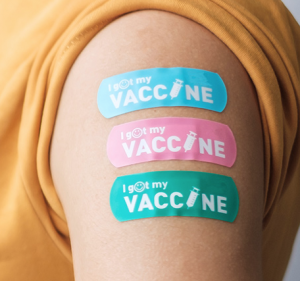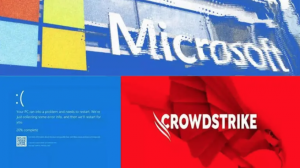For the attention of:
Professor David Amigoni
Pro Vice-Chancellor (Research and Enterprise)
Keele University
Dear Professor Amigoni
It’s astonishing that Keele University has rejected funding for Professor Christopher Exley’s research into aluminium, particularly aluminium and vaccines. The donation in question is $15,000 from Mr Robert F Kennedy, Chairman of Children’s Health Defense.
Professor Amigoni, are you aware of the many aluminium-adjuvanted vaccine products and revaccinations given to children now?
In Australia there are twelve aluminium-adjuvanted vaccine injections on the taxpayer-funded National Immunisation Program Schedule, please see these listed below at Reference no. 1, i.e. aluminium-adjuvanted injections including hepatitis B, diphtheria, tetanus, pertussis, polio, Haemophilus influenzae type B, pneumococcal, and human papillomavirus. In South Australia babies also have three doses of aluminium-adjuvanted meningococcal B vaccine, making fifteen doses of aluminium-adjuvanted vaccines for children in South Australia.
It’s essential to independently and objectively monitor the safety of the increasing number of vaccine products and revaccinations being pressed upon the global community, and to consider the consequences of repeated vaccination throughout life.
It’s notable that this review was funded by the World Health Organisation, an organisation which is severely compromised by its associations with the vaccine industry and the Bill & Melinda Gates Foundation, which is exerting enormous influence over international vaccination policy and the burgeoning number of lucrative vaccine products promoted now.
The authors of the WHO-funded review relevant to aluminium and vaccine safety concluded: “We found no evidence that aluminium salts in vaccines cause any serious or long-lasting adverse events.”
However, the authors also admitted that: “Overall, the methodological quality of included studies was low. Few reports gave details of the randomisation process, allocation concealment, reasons for withdrawals, or strategies to deal with them in analysis. Inconsistencies in reporting, lack of clarity on numerators and denominators, variability of outcome definitions, and lack of outcome definitions led to much loss of data.”
Professor Amigoni, I suggest the 2004 review on aluminium and (DTP) vaccine safety is scientifically unsound and should not be relied upon to justify the safety of the many aluminium-adjuvanted vaccine products and revaccinations on current international vaccination schedules.
The authors of the review admitted that “Overall, the methodological quality of included studies was low” and that there was “a lack of good-quality evidence”. In my opinion, the authors should have concluded there was not sufficient evidence to come to conclusions about the safety of aluminium in vaccine products, and that further research was needed on this subject. Instead, they recommended against any further research on this topic, a bizarre recommendation which has had far-reaching effects.
With the growth in aluminium-adjuvanted vaccine products and revaccinations, it’s alarming that research in this area continues to be obstructed, most recently with Keele University’s rejection of Mr Kennedy’s donation.
How can you justify obstructing research into aluminium and vaccine safety? This is an important area which has ramifications all around the world, particularly in countries such as Australia and the United States where vaccines are mandated for children, and ‘informed consent’ before each of these increasing number of medical interventions is not being ethically obtained.
Professor Amigoni, I ask you to reconsider Keele University’s rejection of donations for research into aluminium and vaccine safety. Rejection of such crucial research is the very antithesis of what a university should do, i.e. foster and support the advancement of knowledge.
I request your response on this matter.
Sincerely
Elizabeth Hart
Independent citizen investigating conflicts of interest in vaccination policy and the over-use of vaccine products.
References:
(There are also additional aluminium-adjuvanted vaccines doses for ‘medically at risk children’, particularly Aboriginal and Torres Strait Islander children living in high risk areas – QLD, NT, WA and SA.)
Birth:
Hepatitis B (H-B-Vax II Paediatric (bioCSL) or Engerix B Paediatric (GlaxoSmithKline))
6 weeks:
South Australia only: Meningococcal B (Bexsero – GlaxoSmithKline) *
2 months:
Multicomponent combined injection for diphtheria, tetanus, whooping cough (pertussis) hepatitis B, polio, Haemophilus influenzae type b (Infanrix hexa – GlaxoSmithKline)
Pneumococcal (Prevenar 13 – Pfizer)
(Note: Oral drops for rotavirus are also given at this time (Rotarix)
4 months:
Multicomponent combined injection for diphtheria, tetanus, whooping cough (pertussis) hepatitis B, polio, Haemophilus influenzae type b (Infanrix hexa – GlaxoSmithKline)
Pneumococcal (Prevenar 13 – Pfizer)
South Australia only: Meningococcal B (Bexsero – GlaxoSmithKline) *
(Note: Oral drops for rotavirus are also given at this time (Rotarix)
6 months:
Multi-component (combined injection) diphtheria, tetanus, whooping cough (pertussis) hepatitis B, polio, Haemophilus influenzae type b (Infanrix hexa – GlaxoSmithKline)
12 months:
Pneumococcal (Prevenar 13 – Pfizer)
South Australia only: Meningococcal B (Bexsero – GlaxoSmithKline) *
(Note: Other vaccine products given at this time are:
A multicomponent combined injection for measles, mumps and rubella (M-M-R II (Seqirus) or Priorix (GlaxoSmithKline)
An injection for meningococcal ACWY (Nimenrix – Pfizer)
18 months:
Multicomponent combined injection for diphtheria, tetanus, whooping cough (pertussis) (Infanrix (GlaxoSmithKline) or Tripacel (sanofi-aventis))
(Note: Other vaccine products given at this time are:
A multicomponent combined injection for measles, mumps and rubella (M-M-R II (Seqirus) or Priorix (GlaxoSmithKline)
An injection for Haemophilus influenzae type b (Hib) (Act-HIB – sanofi-aventis)
4 years:
Multicomponent combined injection for diphtheria, tetanus, whooping cough (pertussis), polio (Infanrix IPV (GlaxoSmithKline) or Quadracel (sanofi-aventis))
10 to 15 years:
HPV (human papillomavirus) x 2 doses (Gardasil 9 – Seqirus)
Multicomponent combined injection for diphtheria, tetanus, pertussis (whooping cough) (Boostrix – GlaxoSmithKline)
* Meningococcal B Immunisation Program in South Australia:











Of course, truth would hurt Mr Pharma and his beneficiaries.